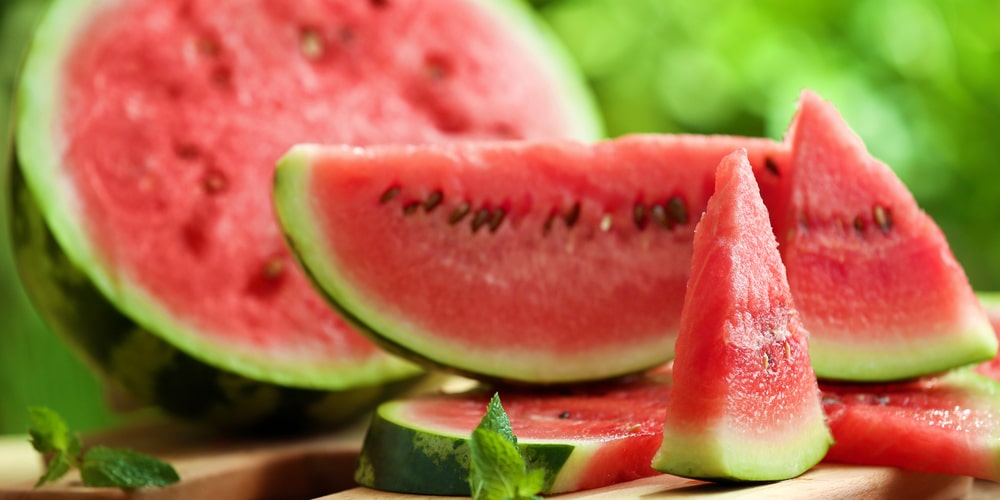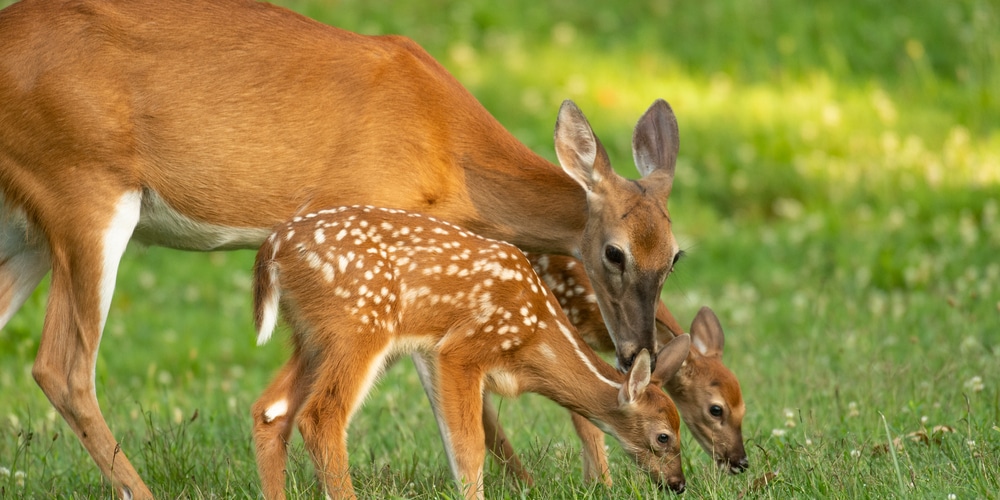A deer is a typical herbivore. As you may be aware, herbivorous animals feed on plants. It is common and okay to ask yourself questions like do deer eat watermelons. Well, you do not have to despair looking for answers very far. In this guide, you are going to learn about deer, if they eat watermelons, how you can prevent that and what are the favorites for deer.
Do Deer Eat Watermelon?
Deer can be awful at times. These animals will consume even the less palatable plants if they do not find something to eat. They are animals that are always on the move to find something to gobble up. Deer eat five times a day, and if they come across your lush garden, you could be counting losses.
Typically, deer are known to feed on leaves, grass, sedges, tree shoots, berries, and fruits at times. They have active salivary glands that have enzymes responsible for deactivating the secondary plant compounds. These enzymes are so powerful that they can break down some elements that would kill domestic animals like a cow. These attributes help the deer to consume several things, including watermelons.
So, to answer the question, yes, deer can eat your watermelons and other fruits. Usually, they will target the ripe watermelons. This becomes cumbersome as they will only ruin your harvest just before you harvest your fruits and make a fortune from them. One thing to understand is that deer will not consume the entire watermelon. However, this is just as wasteful since the fruit cannot be consumed in that state.
Deer can be a nuisance if they discover a garden with free fruits to gobble. They will always come back to harvest. They will make holes inside the melon rind and eat the tasty flesh. That is why you need to keep deer out of your garden by any means possible. Learn some deterrent ways on how to stop the deer.
Did you know that deer can jump a fence? That technical means that even if you enclose the garden using a fence, there are high chances that the deer will go over the fence if they find the fruits in your garden sweet. So, how can you keep deer away from your watermelon? If you decide to go the fence way, you could improvise it a little bit.
Fence the garden with two parallel fences. Please make sure they are around 4 or 5 feet high and about 3 feet apart. Mesh, netting, or chicken wire can also be used to keep away deer around individual plants. However, you will have to keep adjusting the net or wire as the plants grow if you decide this. Below are the other ways you can successfully keep away deer.
How to keep deer away

Repellents
Many people claim that these repellents never work on deer. However, the truth is that they work perfectly well. Understand that it is all about how you will use the repellent to keep away the deer. It is recommended to keep altering the repellents. Deer can easily adapt to your repellant if you use it repeatedly.
Swapping the repellents will give the deer discomfort, and they will avoid your farm with time. Repellants can be made at home or purchased from a local store. For the homemade repellants, you can look for concentrated predator’s urine, such as a fox or coyotes. Deer fear these predators, and they will scamper for safety at the smell of their urine. You could also try human scent or make a pungent garlic and pepper mix.
Sidetracking
Sidetracking basically involves sacrificing some portion of your garden. In this section, you should plant unpalatable plants to try and keep away the deer. You can even try distasteful plants on your perimeter. The unpalatable plants are to send away the deer from their awful taste. Plant the unpalatable plants on the periphery since this is where the deer will start eating first.
You may even concentrate the plants at the entry point where the deer get to your farm. However, it would help if you were mindful because deer are known to eat almost everything, so they could eat up the awful plants in the future. Therefore, it is advisable to sacrifice what you plant here, the deer could eat it up, and you don’t want it to be something you could have harvested. Some of the repellent plants you can consider include boxwood, hollies, yarrow, iris, azalea, Shasta, and spirea.
Avoid frequent fertilizers
Some fertilizer varieties attract deer. These may include nitrogen-based fertilizers like ammonium nitrate and calcium nitrate. Only use these fertilizers if it is necessary to use them on the watermelons. Again remember, if you have to use these fertilizers, protect the plants to avoid invasion by deer. You could use mesh wire or nets to cover the plants and keep away these animals.
Use motion deterrents
Some farmers decide to use motion-activated deterrents. This is also effective as far as keeping the deer away is concerned. Some of the deterrents have lights that keep blinking while others release noise. Other technological devices will sprinkle water on the deer once they enter your lands.
Deer are easily scared off. The animals are aware that they are a favorite snack to many predators in the wild. Their shy nature also makes them get away from humans or any slight provocation. That means with a motion deterrent; no deer will dare stand their ground. The weird noises deterrent could ensure the deer never returns to spoil your watermelon.
Do Deer Eat Watermelon?: Take Away
The answer to your question, “do deer eat watermelon?” is yes. Deer eats watermelon even though it will not consume the entire fruit. As you take care of the fruits, you should also take care of the shoots. Herbivores love young shoots, and deer will eat them up at the first opportunity. Even if you decide to plant the non-desirable plants to keep them off, you could also use other means such as repellents.
If you leave the garden unchecked for long, deer will destroy every watermelon fruit and plant you have planted. You can combine these hacks to keep your farm safe from deer attacks.
Related article: When to plant winter wheat for deer?

